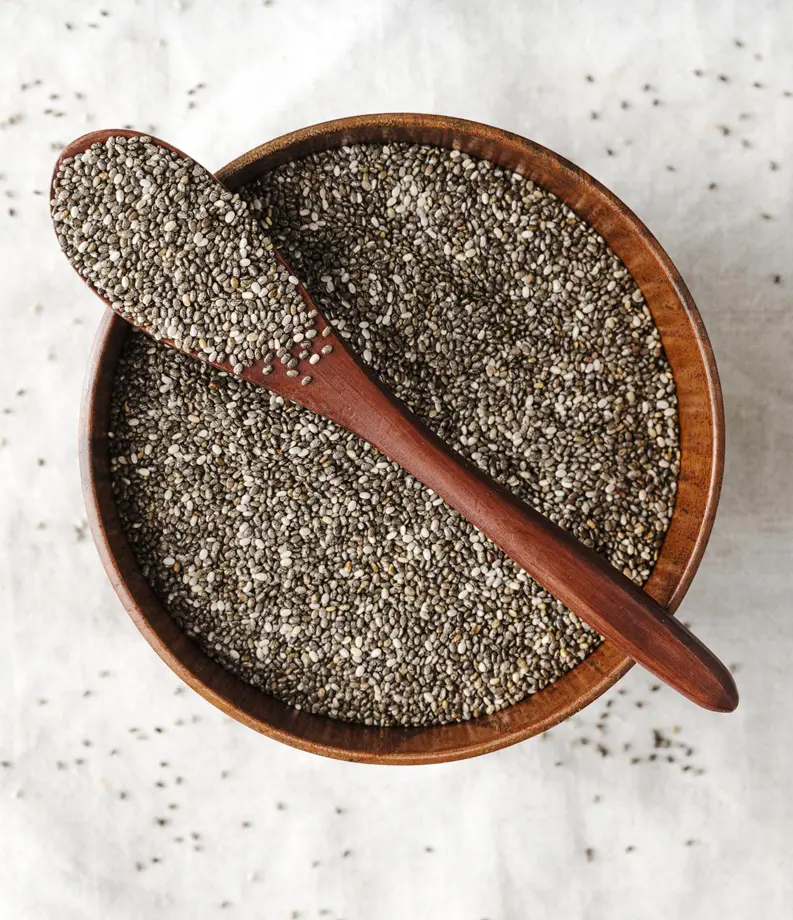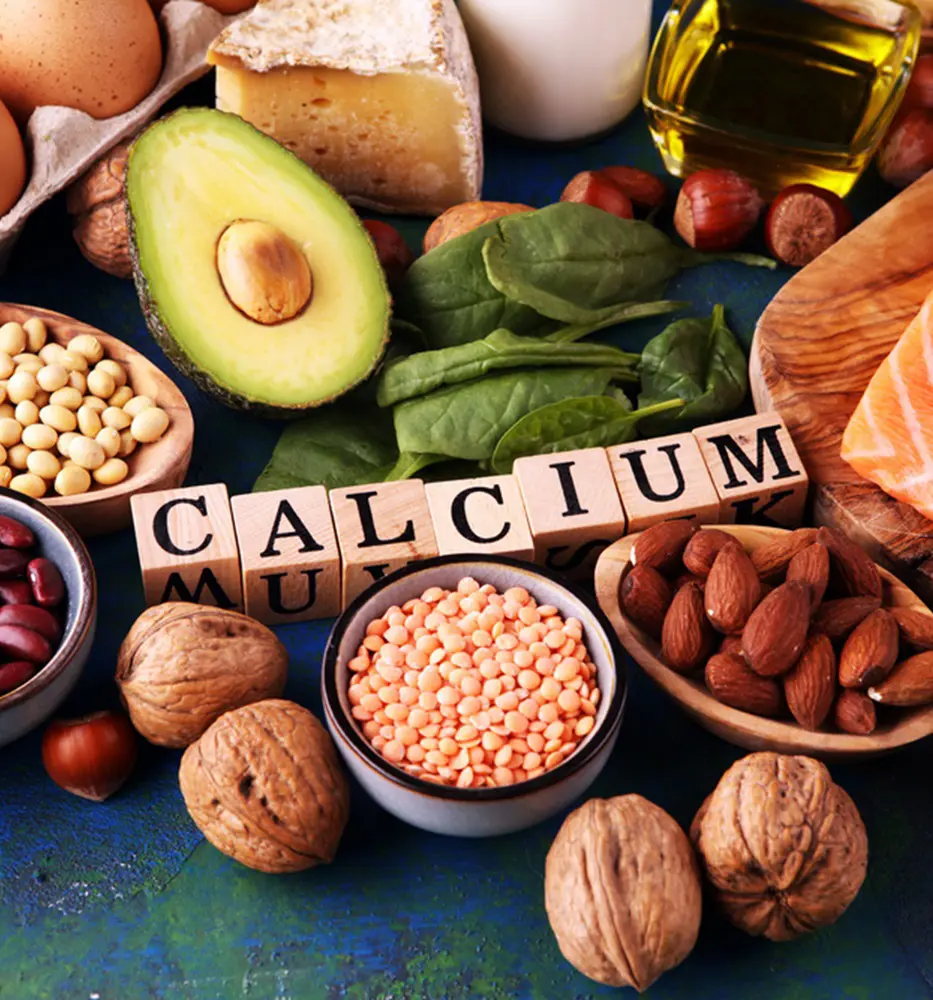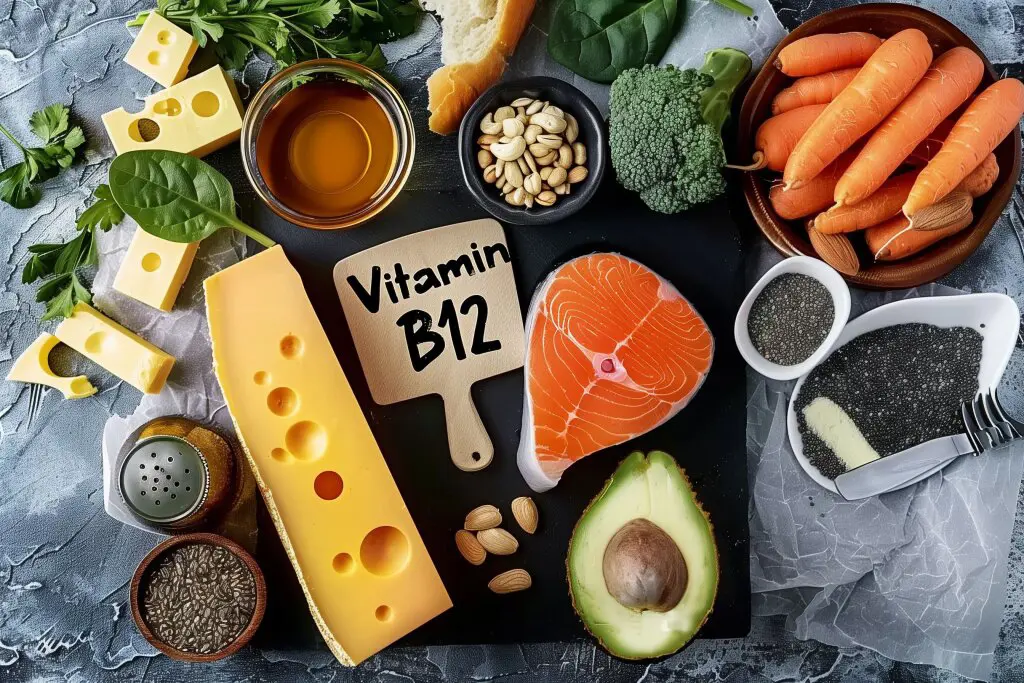Butter Nutrition Facts And Health Benefits

This post may contain affiliate links. If you make a purchase through links on our site, we may earn a commission.
Used as a staple in cooking and baking, and as a spread for thousands of years, butter is known for its distinct flavor and nutritional profile. It is a dairy product made from separating whole milk or cream into fat and buttermilk.
Butter has a high content of butterfat, or milk fat (approximately 80%), but is low in protein also constituting substantial amounts of vitamin A and minor amounts of calcium, phosphorus, and vitamin D. Here, we will discuss the nutritional facts and benefits related to butter.
Nutrition Facts
Butter, which is made by churning milk or cream is rich in fat, and calories and consists of several vitamins and minerals.
According to USDA, here are some nutritional facts for 1 tablespoon (14.2g) of butter:
- Calories: 102kcal
- Water: 2.3g
- Ash: 0.013g
- Total Fat: 11.5g
- Total Sugars: 0.009g
- Cholesterol: 30.5mg
- Sodium: 1.56mg
- Potassium: 3.41mg
- Carbohydrate: 0.009g
- Protein: 0.121g
- Calcium: 3.41mg
- Iron: 0.003mg
- Magnesium: 0.284mg
- Phosphorus: 3.41mg
- Zinc: 0.013mg
- Copper: 0.002mg
- Manganese: 0.01mg
1. Rich In Vitamins
Butter is rich in fat-soluble vitamins. Vitamin A helps maintain and improve your eyesight, especially in low-light conditions, and also supports maintaining skin health. It also plays a crucial role in boosting the immunity functions in your body.
Likewise, vitamin D is known for supporting the absorption of calcium content in the body. Like vitamin A, it also helps support immune system function and may prevent you from chronic health diseases. Eating butter protects your cells from getting damaged by free radicals due to vitamin E.
Vitamin K2 helps maintain your bone health by delivering calcium to the bones and teeth. Consumption of butter also keeps your heart healthy as vitamin k3 prevents the deposit of calcium in the arteries.
2. Has Healthy Fats
You can find a combination of saturated and unsaturated fats in the butter. This combination is essential for overall health.
The saturated fat content in the butter helps in the production of hormones and proper brain functioning. These fats also help absorb fat-soluble vitamins in the body. Meanwhile, butyrate, which is known to have anti-inflammatory properties helps reduce symptoms of irritable bowel supporting gut health. You can also be able to improve your colon health with this fatty acid found in the butter.
If you are wondering about other possible benefits of these fats, let me tell you that they may also help reduce fat and prevent cancer.
3. Offers Anti-stiffness Factor

Butter contains an "anti-stiffness" factor, which is primarily attributed to a compound called the Wulzen Factor. The Wulzen or "anti-stiffness" factor is a nutrient unique to unpasteurized cream/butter. The Wulzen factor founder showed that this compound could reverse the calcification of joints in osteoarthritis.
The Dutch researcher Wulzen found that it protects against calcification of the joints (degenerative arthritis) as well as hardening of the arteries, cataracts, and calcification of the pineal gland. Due to this reason, the consumption of butter can help aged people prevent stiffness in their joints.
Important Consideration
However, the Wulzen Factor is destroyed during pasteurization, so to benefit, you must consume butter in its raw, unpasteurized form.
4. Lowers Risk Of Cancer
Several components in butter like vitamin A, vitamin D, selenium, Conjugated Linoleic Acid (CLA), and butyrate help lower the risk of certain cancers.
An antioxidant like vitamin A plays a significant role in maintaining the health of epithelial tissues, which are usually the first sites of cancer formation. Vitamin D which possesses several cancer-protective effects helps regulate cell growth and promote cellular differentiation.
Selenium, a trace mineral helps prevent cancer by aiding in repairing DNA and immune function and protecting cells from oxidative damage. The CLA content in butter inhibits the growth of cancer cells minimizing the risk of tumors in breast and colorectal regions.
5. Helps To Reduce Weight

Butter, especially grass-fed butter consists of Conjugated Linoleic Acid (CLA). According to some studies, it was found that CLA can benefit you in terms of weight management.
As mentioned earlier, butter plays a major role in various bodily functions as it helps your body absorb fat-soluble vitamins supporting overall health. Butter also helps enhance body metabolism and burn fat more effectively.
Furthermore, the content of fat in the butter can help keep you feel fuller for a prolonged period which ultimately helps reduce calorie intake.
6. Makes Skin Healthier
The nutritional content of butter can benefit your skin to some extent. Butter, a good source of vitamin A aids in skin cell growth and repair. Additionally, it is responsible for maintaining healthy skin tissue and preventing acne and other skin conditions.
Butter also has vitamin E, which reduces damage from UV sun rays, eases skin inflammation, and helps skin wounds heal. Furthermore, the CLA content in butter helps to improve skin elasticity and it also possesses anti-inflammatory properties like vitamin E.
These are the contributing factors in butter that help you achieve a glowing complexion.
7. Improves Bone Health
Butter contains vitamins like A, D, and K2 that can contribute to maintaining your bone health. Vitamin A helps absorb calcium and make proper utilization of calcium, which helps promote stronger bones.
It is a good source of vitamin K2 which prevents tooth decay and builds strong teeth and bones. Similarly, vitamin D is another nutrient that can help strengthen your bones with its calcium content. If you consume butter regularly, you can prevent yourself from several bone diseases as well.
8. Supports Brain Health

Butter contains vitamins like A, D, E, and K2, which support the production of neurotransmitters, regulation of mood, and cognitive health.
You can find the content of cholesterol, which is necessary for brain health in the butter. The brain needs cholesterol for proper function, particularly in the formation of synapses. These play a crucial role in enhancing learning and memory in people.
Moreover, butyrate present in butter helps reduce inflammation thus promoting brain health. Similarly, omega-3 fatty acids found in grass-fed butter help protect against neurodegenerative diseases and maintain or regulate cognitive function.
9. Supports Hormonal Health
Butter can play a significant role in the production of hormones, including sex hormones like estrogen and testosterone due to the content of saturated fats present in it. Also, these saturated fats can be useful in building cell membranes and supporting overall health.
Moreover, your body becomes able to absorb other essential nutrients which helps maintain hormonal balance through the aid of healthy fats from butter. According to some studies, it was found that moderate consumption of saturated fats may help reduce inflammation, supporting to maintenance of hormonal balance.
10. Promotes Eye Health
Butter is considered an essential food item for maintaining good vision and eye health as it is an excellent source of vitamin A. Vitamin A helps prevent conditions like dry eyes and age-related macular degeneration (AMD). It also enables good night vision and overall eye health.
Nutrient like beta-carotene helps protect the eyes from oxidative stress reducing the risk of cataracts and other eye diseases as it has antioxidant properties.
Similarly, carotenoids like lutein and zeaxanthin filter harmful blue light and protect the eyes from oxidative damage which in turn reduce the risk of AMD and cataracts.
11. Promotes Fertility

Butter can promote fertility in women because it contains cholesterol, which is needed to make fertility hormones and fight inflammation. Butter is so unbelievably nourishing, containing Vitamin A, D, E & K2, Butyrate & Calcium.
Vitamin A is the most abundant vitamin in butter and is essential for the development of the immature egg/ oocyte and the growth of the baby. Vitamin D is important for testosterone synthesis, supports ovulation, improves the quality of endometrium, and supports fetal growth and skeletal development.
Vitamin K2 is shown to improve symptoms of PCOS, improves testosterone production, improved sperm counts. It is also important for prenatal development as it has been linked to teeth formation and central nervous development.
12. Relieves Gastrointestinal Problems
Butter contains butyrate which can promote digestive health by reducing intestinal inflammation and supporting the uptake of fluids and electrolytes to promote regularity and electrolyte balance.
Some other benefits of butyrate are it may aid in treating irritable bowel syndrome (IBS), a condition characterized by symptoms like stomach pain, bloating, constipation, and diarrhea.
13. Boosts Immune System
Butter has a portion of fatty acids that helps in improving the immune system by the treatment of a variety of viruses, and bacterial and fungal infections.
New data suggests that butyric acid, as contained in butter, can treat colon cancer, bowel disorders, neurological disorders (cognitive issues like Alzheimer’s and Dementia), and metabolic disorders (like Diabetes). Butyric acid, or butyrate, works at a cellular level. It is a basic energy source that cells need to perform their specialized functions. Butyric acid also helps calm an over-active immune system, cell-signaling, and regulating the inflammatory response.
The content of vitamin A in butter helps in the production and function of white blood cells, which are vital for fighting infections.
14. Helps Build Muscle

Butter protein is derived from a rich, creamy substance. The protein in butter is primarily casein, a slow-digesting dairy protein that provides a steady release of amino acids into the bloodstream, This helps you to achieve sustained muscle repair and growth.
Similarly, butter, which is high in calories can help individuals gain muscle mass. Additionally, the content of saturated fats in butter can help provide a steady source of energy which is important for performing intense workouts and body recovery as muscle-building requires adequate energy availability.
CLA, found in butter, may help reduce body fat while preserving muscle mass. Some studies found that it has the potential to improve body composition, making it easier to build lean muscle.
15. Lowers Risk Of Heart Attack
As mentioned earlier, butter contains vitamin K2, which helps to maintain heart health by preventing calcium from depositing in the arteries. According to a study, it was found that the consumption of high-fat dairy reduced the risk of heart disease by an incredible 69% most likely due to increased vitamin K2 intake.
It is believed the consumption of grass-fed butter helps lower body fat, and improve lipid profiles. This can potentially lessen the risk of cardiovascular disease. Also, the omega 3s content can help reduce blood pressure and triglyceride contributing to maintaining heart health.
Butyrate possesses anti-inflammatory properties This can help lower the risk of heart attack by reducing inflammation.
16. Controls Blood Sugar Levels
Butter is a pure fat, low-carbohydrate food and does not have a glycemic index. The content of vitamin A in butter supports pancreatic function helping to maintain balanced blood sugar levels in the body. Likewise, CLA in butter regulates blood sugar by improving the body’s response to insulin.
A study shows that a daily 14 g serving (1 tbsp) of butter consumption was associated with a 4% lower risk of type 2 diabetes.
Butter protects from high sugar spikes and the inevitable drop that comes afterward. Putting butter on your food, especially higher-carb foods can slow the absorption of sugar in the bloodstream, leading to more stable blood sugar levels. This proves to be highly beneficial for people with insulin sensitivity or diabetes.
17. Ensures Optimal Growth And Development for Children

Butter offers some health benefits for young children. Not only does the fat in butter help keep baby bellies full, but its high-calorie count can be an advantage for kids who need to put on weight.
Butter is also a surprising source of vitamins. According to USDA, one tablespoon contains 400 international units of vitamin A, as well as small amounts of vitamin D, vitamin E, vitamin B12, and vitamin K2.
The vitamins support the development of healthy vision, skin, and immune function and proper functioning of the thyroid gland. They are also essential for strong bone development and skeletal growth.
The fat content in butter plays an important role in babies’ neurological development and brain function too.
18. Improves Mood and Mental Health
Butter has numerous nutrients that are not found in most vegetable oils—including vitamin A (which promotes the production of neurotransmitters such as dopamine that are key players in mood and memory), along with vitamins D and B12.
Butter contains omega-3 and omega-6 fatty acids, which help regulate mood and cognitive function help regulate mood and cognitive function and can reduce the risk of depression.
Recent posts
Nutrition
Nutrition
16 Benefits Of Coriander That Will Surprise You
Abundant in nutrients and antioxidants, coriander is an annual herb with a characteristic aroma that is extensively used around the world. Both coriander leaves (also called cilantro) and seeds are used in various cuisines around the world. Known fo...
Nutrition
Chia Seeds Benefits: 15 Reasons To Eat These Tiny Seeds
Chia seeds are tiny edible seeds obtained from the plant known as "Salvia hispanica", belonging to the mint family. Oval, gray, and filled with black and white spots, these small seeds are highly valued for their abundant nutrients and health be...
Nutrition
How Much Calcium Is Actually Needed?
Calcium is a mineral associated with bones, muscles and the nervous system in the body. Current dietary guidelines suggest different Recommended Dietary Allowances(RDAs) for adult males and females, with 1000mg being optimal for males and 1200mg for...
Nutrition
B12 Vitamin Food Sources: A Comprehensive Guide
Vitamin B12, an essential nutrient, plays a crucial role in various bodily functions, including red blood cell production, nerve function, and DNA synthesis. While animal-based foods are the primary sources of B12, certain fortified plant-based foods...
Nutrition
What Foods Are High In Cholesterol? 20 Foods To Avoid
Animal products like meat, eggs, milk, and cheese are sources of dietary cholesterol, unlike plant-based foods. For those aiming to lower their cholesterol intake, it's essential to be mindful of animal-based food choices. While some high-cholesterol...
Nutrition
18 Fat Burning Smoothies For Weight Loss
The weight loss journey is tough if you have to get on the same path day after day, facing cravings and temptations along the way. We suggest you stop making it a monotonous struggle and make it a flavorful adventure instead. One of the easiest and m...







